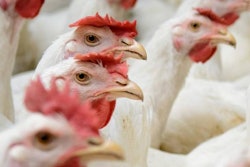
The House Agriculture Committee advanced its draft of the 2018 farm bill out of committee just six days after it was introduced, which should have sounded like good news.
It would seem that with such a quick turnaround, the bill, known as the Agriculture and Nutrition Act of 2018, would be amicable for members of both major political parties, particularly because the agriculture committee has a reputation of being the House’s most non-partisan committee. Right?
Wrong.
The bill found favor from all of the Republicans on the committee, but none of the Democrats.
And apparently, neither the committee’s chairman nor ranking member were too pleased with the process.
Views of Republicans
When House Ag Committee Chairman K. Michael Conaway, R-Texas, announced the advancement of the bill, the press release focused more on spreading negativity about the Democrats than about the bill itself.
“I’m disappointed that my Democrat colleagues have turned their backs on America’s heartland – that they’ve chosen partisan politics over the three years of bipartisan work in this committee. Democrats halted talks over their objection to requiring work-capable adults to either find employment or receive free training for 20 hours per week. Yet, despite this turn of events, I remain hopeful. When House Democrats pushed a partisan farm bill that raised taxes in 2008 over Republican objections, Republicans worked alongside Democrats to fend off hostile amendments aimed against the legislation on the House floor and worked in conference committee to achieve a bipartisan farm bill. I am hopeful Democrats will not hold the nation’s farmers and ranchers hostage in this process over the SNAP (Supplemental Nutrition Assistance Program) work and training requirements, which will provide SNAP beneficiaries not just a benefit, but a better future that only a job can provide,” Conaway stated.
Freshman Rep. Roger Marshall, R-Kansas, also a member of the committee, also had concerns about the views of some committee members about the 20-hour training provision, although he was more subtle when it came to pointing a partisan finger.
“Voting against this bill completely undermines the struggles our farmers are facing,” Marshall stated. “Mid-term election posturing should never be put ahead of our farmers, and it’s clear by the vote today that was the case.”
Views of Democrats
Ranking Member Collin Peterson, D-Minnesota, had previously expressed worries about the partisan nature of the legislation before it was ever passed out of committee.
In an email newsletter sent on April 13, Peterson stated: “I was discouraged to see the Committee on Agriculture officially start down a dangerous path by moving to consider a partisan farm bill that fractures the coalition needed to get the strongest possible farm safety net signed into law. The bill fails to make the investments needed to support production agriculture and our rural communities. The Agriculture Committee has historically been a place about finding common ground to meet the needs of rural America. Moving a partisan bill is uncharted territory, and I will continue to urge agriculture, nutrition and conservation stakeholders to not burn bridges so we can put the pieces together after this effort runs its course.”
Peterson continued to express his displeasure with the partisanship in the makeup of the bill in his April 18 statement, and vowed to not give up. He added that he had always been able to work out compromises with former Republican committee chairmen Frank Lucas and Bob Goodlatte.
Will Senate honor its promise to be bipartisan?
With a partisan tone already set in the bill’s earliest stages, I have to wonder if it will continue as debate of the bill continues.
It is hard to predict what the House as a whole will do with the bill, or what the Senate will do when it takes up farm bill discussions. However, if promises are kept, we will end up with a bipartisan bill.
When the bill was initially introduced in the House Agriculture Committee, the leaders of the Senate Committee on Agriculture, Nutrition and Forestry vowed to work together for a bipartisan bill. Chairman Pat Roberts, R-Kansas, and Debbie Stabenow, D-Michigan, jointly issued this statement: “We continue to be committed to working on a farm bill for all farmers and families. With low commodity prices, worsening conditions in farm country, and unmet needs in communities across the country, we need to get this farm bill right. We're working together as quickly as possible to produce a bipartisan bill that can pass the Senate and be enacted into law.”
But when the House bill passed out of committee, Stabenow expressed worry.
“In 2014, we were successful in passing a landmark farm bill because we had a broad, bipartisan coalition including farmers, conservationists, nutrition and local food advocates, rural communities and others working together for passage. Unfortunately, the Republican leadership of the House Agriculture Committee has abandoned this coalition and has chosen a partisan path that makes it impossible to pass a five-year farm bill,” Stabenow stated. “I remain committed to working with Chairman Roberts to write a bipartisan bill in the Senate focused on our farmers, families and rural communities in Michigan and across the country.”
Roberts has not issued a statement since the bill advanced.


















